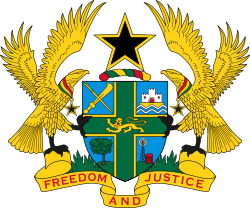 | |
| Agency overview | |
|---|---|
| Formed | 1993 |
| Jurisdiction | Government of Ghana |
| Headquarters | Accra, Ghana |
| Minister responsible |
|
The Ministry of Environment, Science, Technology and Innovation is the ministry of Ghana responsible for the development of environment and science in the country. [1]

